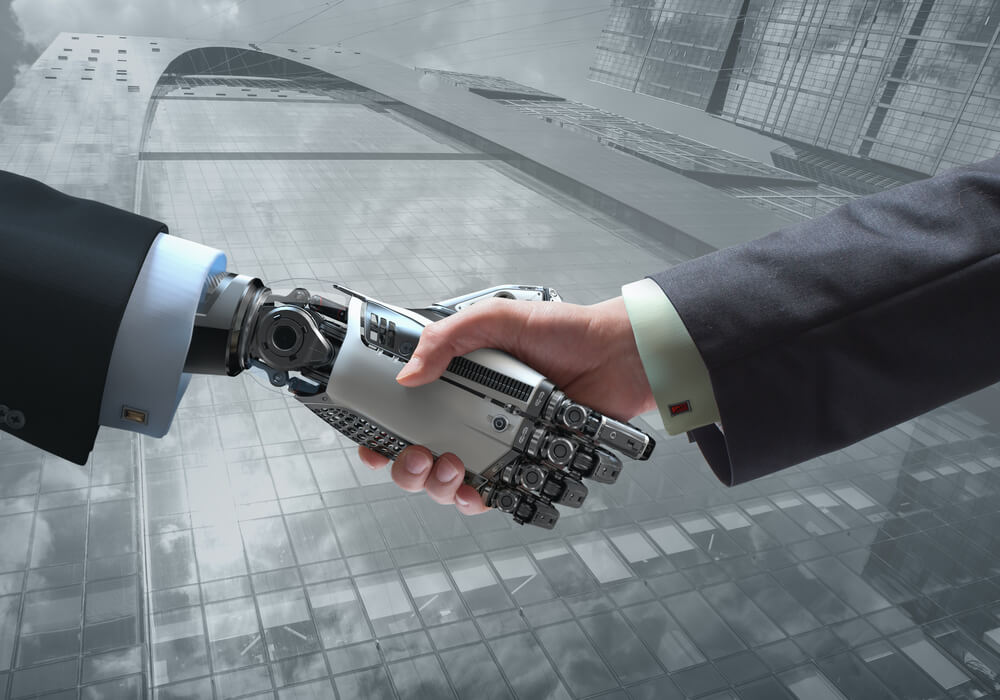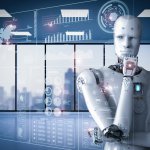
According to Gartner, AI technologies will be present in “almost every new software product” by 2020, making this an exciting time for software providers across the globe. Source: Shutterstock.com
Machine learning is going to be the next big tech since the Internet
MACHINE learning is set to be a defining technology of 2018, changing the way we live and work more than any tech advancement since the Internet.
And though machine learning may seem like a thing of the future, right now it is everywhere around us. It’s written into the software on our phones, present in our cars and homes, and in the business programs we use at work.
Defined as an application of artificial intelligence (AI), machine learning technology provides systems with the ability to automatically learn and improve from experience – without being programmed to do so.
“Media heads may be turned by robots and driverless cars and these will certainly be key areas of development in the years to come, but machine learning is changing the world around us in significant ways right now,” said Chris Chelliah, group vice-president and chief architect for core technology and cloud at Oracle Asia Pacific.
“Its ability to dramatically reduce the time and improve the effectiveness of our decision-making may sound less sensational than driverless cars, but it is what will make machine learning an era-defining technology,” he adds.
According to research firm Gartner, AI technologies will be present in “almost every new software product” by 2020, making this an exciting time for software providers across the globe.
Not replacing humans, simply making them better

AI can help brands have better, more human, interactions with their consumers. Source: Shutterstock.com
With the inexorable march of machine learning technologies comes the inevitable fear many jobs will soon be replaced by inhuman imposters with metal hearts and algorithmic veins.
Yet what many fail to realize is machine learning actually seeks to improve the capabilities of humans through reducing the time it takes to complete tasks and improve the effectiveness of our decision-making skills.
“It isn’t going to replace people, but it can certainly make people better at whatever they do,” said Chelliah.
Disrupting the customer service industry
Today, machine learning is revolutionizing customer service, holding the promise to change all that customers hate about the consumer experience.
For instance, it offers faster and more efficient service, improves customer analytics, enables continuous improvement through software being able to learn from past experiences, creates more personalized experiences for customers, and can even prevent identity theft and fraud.
According to Chelliah, chatbots are enabling businesses to more efficiently answer customer enquiries.
“In almost any customer-facing industry, a vast number of enquiries fall into a limited number of categories and many are simple to predict and respond to using chatbots that are powered by machine learning that refines and hones their ability to accurately respond to customers.
“This reduces waiting times and frustration among customers and makes businesses more efficient. It also frees up customer service agents to handle the limited number of complaints that are more unique and require human intervention.”
Cloud computing and machine learning
As cloud technologies mature and adoption continuously increases, this will go hand-in-hand with the growth and effectiveness of machine learning.
Cloud applications, platforms and infrastructures open up machine learning to vast pools of valuable data from across organizations and their networks.
“The algorithms that drive machine learning need data, as much, and from as many sources, as possible. The more it feeds on that data the smarter it becomes and the greater its decision-making potential,” said Chelliah.
According to Chelliah, “if there is a risk with machine learning, it is in ignoring it”. In order for businesses to not miss out on the value of machine learning, 2018 should be the year in which they jump onboard the technology, if they are not doing so already.
“Organisations that harness the power of machine learning will quickly leap ahead, due to the speed and efficiency of the improved decision-making it powers. No business can afford to sit back and wait. If they do, they will be left behind,” said Chelliah.
READ MORE
- Analyzing Malaysia’s top e-commerce players of 2017
- Moving Asia 2017: How technology is defining the future of transport
- Which tech trends proved the biggest for small and medium businesses in 2017?
- Here’s a recap of your favorite Tech Wire Asia stories of 2017
- Trends in email marketing for 2018 you can use today








